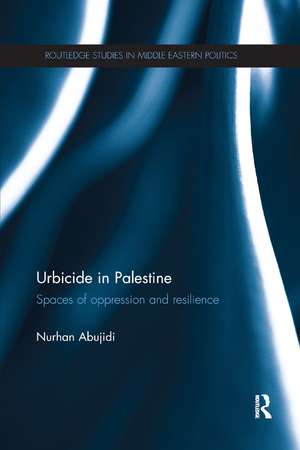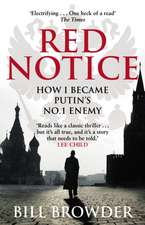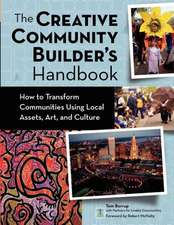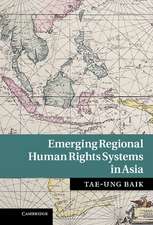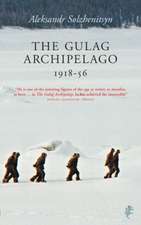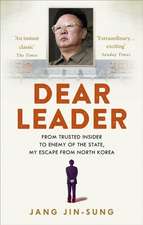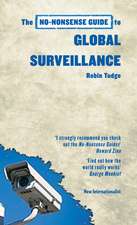Urbicide in Palestine: Spaces of Oppression and Resilience: Routledge Studies in Middle Eastern Politics
Autor Nurhan Abujidien Limba Engleză Paperback – 12 dec 2019
The broader framework of the book is colonial and post- urban destruction urbanism; with a working hypothesis that there are links, gaps and blind spots in the understanding of urbicide discourse. Drawing on several examples from the Palestinian history of destruction and transformations, such as; Jenin Refugee Camp, Hebron Old Town, and Nablus Old Town, a methodological framework to identify urbicidal episodes is also generated.
Advancing knowledge on one historical moment of the urban condition, the moment of its destruction, and enhancing the understanding of the Palestinian Israeli conflict from urbanistic/ architectonic and Urbicide / Spacio-cide perspectives through the use of case studies, this book will be essential reading for scholars and researchers with an interest in Urban Geography and Middle East Politics more broadly.
| Toate formatele și edițiile | Preț | Express |
|---|---|---|
| Paperback (1) | 259.98 lei 6-8 săpt. | |
| Taylor & Francis – 12 dec 2019 | 259.98 lei 6-8 săpt. | |
| Hardback (1) | 1171.19 lei 6-8 săpt. | |
| Taylor & Francis – 27 feb 2014 | 1171.19 lei 6-8 săpt. |
Din seria Routledge Studies in Middle Eastern Politics
-
 Preț: 311.41 lei
Preț: 311.41 lei -
 Preț: 280.08 lei
Preț: 280.08 lei -
 Preț: 309.89 lei
Preț: 309.89 lei -
 Preț: 294.53 lei
Preț: 294.53 lei - 9%
 Preț: 1004.93 lei
Preț: 1004.93 lei - 18%
 Preț: 1065.06 lei
Preț: 1065.06 lei - 18%
 Preț: 1170.14 lei
Preț: 1170.14 lei - 12%
 Preț: 300.49 lei
Preț: 300.49 lei - 18%
 Preț: 1057.57 lei
Preț: 1057.57 lei - 12%
 Preț: 300.49 lei
Preț: 300.49 lei - 18%
 Preț: 1162.08 lei
Preț: 1162.08 lei - 26%
 Preț: 850.37 lei
Preț: 850.37 lei - 18%
 Preț: 1066.09 lei
Preț: 1066.09 lei - 18%
 Preț: 1057.05 lei
Preț: 1057.05 lei - 18%
 Preț: 1059.48 lei
Preț: 1059.48 lei - 18%
 Preț: 1166.01 lei
Preț: 1166.01 lei - 18%
 Preț: 1067.14 lei
Preț: 1067.14 lei - 25%
 Preț: 854.33 lei
Preț: 854.33 lei -
 Preț: 418.22 lei
Preț: 418.22 lei -
 Preț: 341.20 lei
Preț: 341.20 lei -
 Preț: 412.27 lei
Preț: 412.27 lei - 18%
 Preț: 1066.09 lei
Preț: 1066.09 lei - 18%
 Preț: 1056.00 lei
Preț: 1056.00 lei -
 Preț: 289.05 lei
Preț: 289.05 lei - 18%
 Preț: 1060.87 lei
Preț: 1060.87 lei - 18%
 Preț: 996.33 lei
Preț: 996.33 lei - 18%
 Preț: 1058.43 lei
Preț: 1058.43 lei - 18%
 Preț: 1056.00 lei
Preț: 1056.00 lei - 18%
 Preț: 1061.57 lei
Preț: 1061.57 lei - 26%
 Preț: 822.36 lei
Preț: 822.36 lei - 18%
 Preț: 1060.52 lei
Preț: 1060.52 lei - 18%
 Preț: 1439.85 lei
Preț: 1439.85 lei - 18%
 Preț: 1163.19 lei
Preț: 1163.19 lei - 18%
 Preț: 1057.75 lei
Preț: 1057.75 lei - 26%
 Preț: 821.29 lei
Preț: 821.29 lei - 18%
 Preț: 1058.79 lei
Preț: 1058.79 lei - 18%
 Preț: 1057.75 lei
Preț: 1057.75 lei - 18%
 Preț: 1056.32 lei
Preț: 1056.32 lei - 18%
 Preț: 1058.43 lei
Preț: 1058.43 lei - 25%
 Preț: 824.70 lei
Preț: 824.70 lei - 18%
 Preț: 1060.25 lei
Preț: 1060.25 lei - 18%
 Preț: 1060.87 lei
Preț: 1060.87 lei - 18%
 Preț: 1071.30 lei
Preț: 1071.30 lei - 26%
 Preț: 820.03 lei
Preț: 820.03 lei - 18%
 Preț: 1056.35 lei
Preț: 1056.35 lei - 18%
 Preț: 1057.05 lei
Preț: 1057.05 lei
Preț: 259.98 lei
Preț vechi: 311.41 lei
-17% Nou
Puncte Express: 390
Preț estimativ în valută:
49.76€ • 51.75$ • 41.70£
49.76€ • 51.75$ • 41.70£
Carte tipărită la comandă
Livrare economică 14-28 martie
Preluare comenzi: 021 569.72.76
Specificații
ISBN-13: 9780367867218
ISBN-10: 0367867214
Pagini: 274
Dimensiuni: 156 x 234 mm
Greutate: 0.45 kg
Ediția:1
Editura: Taylor & Francis
Colecția Routledge
Seria Routledge Studies in Middle Eastern Politics
Locul publicării:Oxford, United Kingdom
ISBN-10: 0367867214
Pagini: 274
Dimensiuni: 156 x 234 mm
Greutate: 0.45 kg
Ediția:1
Editura: Taylor & Francis
Colecția Routledge
Seria Routledge Studies in Middle Eastern Politics
Locul publicării:Oxford, United Kingdom
Public țintă
Postgraduate and UndergraduateCuprins
Part I: Introduction: Experiencing Spaces of Oppression and Resistance 1 Cities & War 2 Urbicide: Theoretical Inquiry Part II: Urbicide in Palestine 3 History of Urban/ Territorial Destruction in Palestine 1948-2002 Part III: Nablus 4 Nablus: Historical Perspective 5 Nablus: a City of Heritage 6 Nablus: Urbicide 2002-2005 Part IV: Revisions 7 Urbicide, States of Exception and Beyond 8 The Palestinian Resistance Discourse
Notă biografică
Nurhan Abujidi received her PhD in Architecture, urban design and regional planning from the Catholic University of Leuven Belgium. She is currently a visiting professor at the Catholic University of Leuven. She worked as Director, Research Director and International Relations Coordinator at the school of Architecture, San Jorge University Spain. She is Associate researcher with the COSMOPLIS research group on City, Culture and Society at the VUB Brussels Belgium working on the areas of military urbanism and Architecture of Resistance.
Recenzii
"Nevertheless, there is much of value in this book beyond the specific case of Nablus, especially where the author focuses on acts of what she calls “spatial resistance,” including movements of symbolic return to destroyed and depopulated villages in historic Palestine and the deployment of “counter-knowledge” to subvert the Israeli regime of surveillance and control. Notably, she also discusses the “re-coloni□□ing movement” of Bab al-Shams, when for a few months in the winter and spring of 2013, several tent “villages” were erected by Palestinian and international activists on lands marked for confiscation and the building of Israeli colonies, particularly in the Jordan Valley. The author sees great potential for this form of “rhizomatic resistance” (following Deleuze and Guattari) that she
sees echoed in the 2011 Egyptian uprising, the Indignado movement in Spain, and the various Occupy protests in the US."
Lisa Taraki
sees echoed in the 2011 Egyptian uprising, the Indignado movement in Spain, and the various Occupy protests in the US."
Lisa Taraki
Descriere
This book explores the way urbicide is used to un/re-make the Palestinian territoriality/urbanity as well as a tool of spatial dispossession and control. It also examines contemporary political violence and destruction in the context of colonial projects in the Middle East. The book demonstrates how the dilution or negation of the Israeli politi
